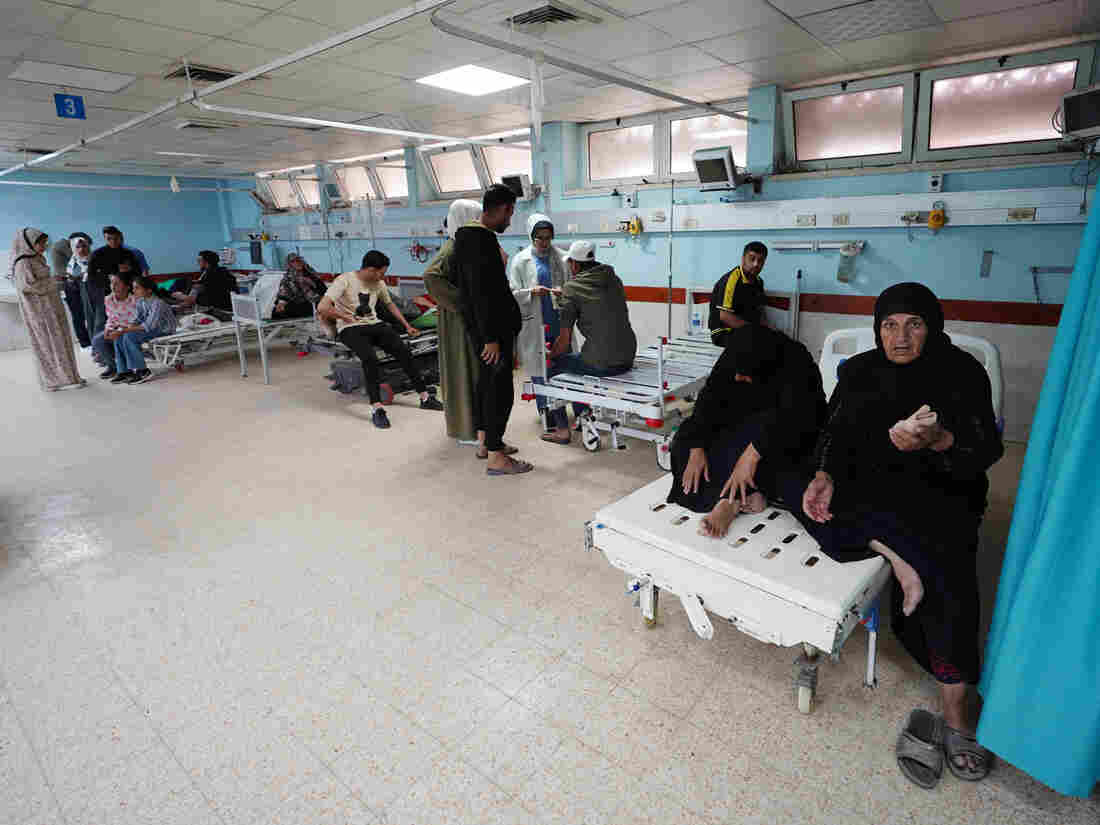A U.S. doctor in Gaza wants President Biden to know ‘we are not safe’
A U.S. doctor in Gaza wants President Biden to know ‘we are not safe’
6:07
Palestinians receive medical care at the European hospital in Khan Younis in the southern Gaza Strip on Friday.
AFP via Getty Images
hide caption
toggle caption
AFP via Getty Images
Palestinians receive medical care at the European hospital in Khan Younis in the southern Gaza Strip on Friday.
AFP via Getty Images
Dr. Adam Hamawy, a U.S. doctor and former U.S. Army combat surgeon who is currently in Gaza, says he has “never in my career witnessed the level of atrocities and targeting of my medical colleagues as I have in Gaza.”
Hamawy told NPR’s Danielle Kurtzleben that he and his colleagues were supposed to depart from Gaza earlier this week but were prevented from leaving. “We were told that our safe corridor had not been cleared, and that we were not supposed to leave the compound. If we did, it would be at our own risk, and we would be legitimate targets” for Israel’s military.
Hamawy was part of a team of health care professionals from the Palestinian American Medical Association who traveled to the Gaza Strip on May 1 to assist at one of the few functioning hospitals left in the area, the European Hospital near Khan Younis in the southern Gaza Strip.
According to NBC, 17 of 20 U.S. doctors stuck in Gaza departed on Friday after talks between U.S. and Israeli authorities allowed some doctors to leave.
Hamawy decided to stay. In a statement shared with NPR, he said, “I want our President to know that we are not safe. When the call came to evacuate, I was asked to choose to either evacuate and leave my team behind or stay with them. I could not in good conscience leave my team behind.”
Hamawy did not specify to NPR the nationalities or the number of the remaining team members.
Hamawy told Kurtzleben that the situation in Gaza is unlike the other conflicts he’s been involved in, because he’s treating primarily civilians, rather than combatants. “I’m seeing mostly children, many women, many elderly — people who have nothing to do with this war at all. And I see very, very few people of fighting age.”
Hamawy also advocated for safer conditions for medical professionals to assist in Gaza. “Anyone who’s providing medical care should be allowed to do that safely,” he said. Instead, Hamawy said people are afraid of what might happen to the European Hospital. “Here we have doctors who have consistently been targeted. We have hospitals that have been consistently targeted.”
Hamawy said he told his family he’s trying to get home. “I just need to also do the right thing. And, we came in as a team, and it’s not fair for me to leave just because I’m an American.”
Since October, NPR has spoken with doctors who describe dire conditions at Gaza hospitals, with limited medical supplies and fuel and many patients dying.
A number of hospital buildings in Gaza have been destroyed by Israeli attacks. The Israeli military says Hamas operates in some of these hospitals, but doctors say the army’s actions are a violation of human rights laws.
